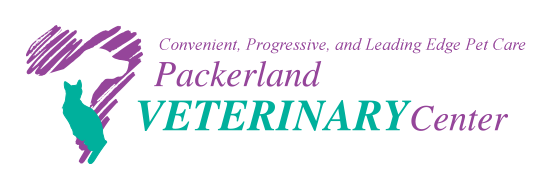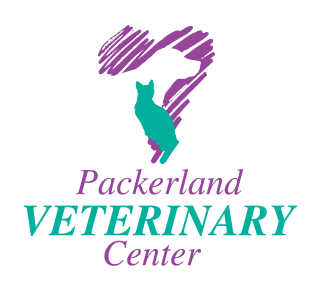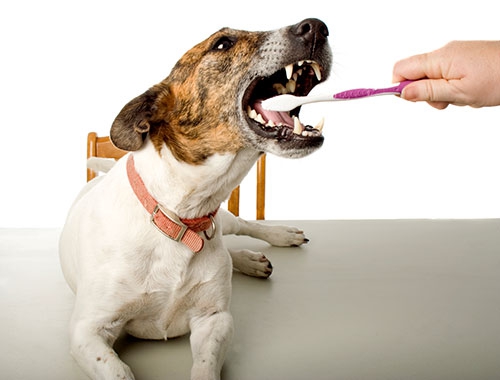


ASK US
February is Dental Month!
 It's not surprising, but pets have teeth too! With all the things we have to remember in a day, sometimes our pet's teeth get a little neglected. Dental disease is one of the most common conditions we see with over 80% of pets showing symptoms by the age of 3. And just like in humans, dental disease in pets is a real problem. It isn't just about "doggie breath" – it is about pain, bone loss, infection and bacteria that doesn't just stay in the mouth, but goes elsewhere and affects other organs like the kidneys and heart.
It's not surprising, but pets have teeth too! With all the things we have to remember in a day, sometimes our pet's teeth get a little neglected. Dental disease is one of the most common conditions we see with over 80% of pets showing symptoms by the age of 3. And just like in humans, dental disease in pets is a real problem. It isn't just about "doggie breath" – it is about pain, bone loss, infection and bacteria that doesn't just stay in the mouth, but goes elsewhere and affects other organs like the kidneys and heart. So what can we do? There are a variety of ways to approach dental health. Ideally, each pet would get their teeth brushed at least once daily. It takes about 24-48 hours for plaque to harden onto the teeth and, unfortunately, once it does it is darn near impossible to get off without the use of professional dental tools. If you'd like to try teeth brushing, our recommendation is to start SLOW! Buy some pet toothpaste in a flavor your pet would enjoy (poultry is very popular!) Let them lick it off of your finger daily for the first week or so as if it were a treat. Then you can slowly move on to putting it on a soft bristle brush or a finger brush and getting a quick swipe on the outsides of the teeth. As they get used to this idea, you can work to brushing longer, mainly focusing on where the tooth and gums meet.
If you can't get your pet used to the idea of brushing, there are other options. Foods formulated specifically for dental health such as Purina DH or Hills t/d are made to hold their shape as a pet chews, scraping the surface of the teeth. The kibble size is larger, forcing pets to chew more than they otherwise might and the food is infused with enzymes that promote dental health. Additionally, there are daily chews, sprays and rinses that may be helpful. We recommend looking for the VOHC seal on these products which certifies that the products have been tested and proven to reduce tartar.
In addition to home dental care, the other important components of dental health are yearly exams and professional dental cleanings. We brush our teeth daily as humans and still require dental cleanings twice yearly. Most pets never have their teeth brushed so they surely will need a cleaning too! Unfortunately, pets won't hold their mouths open nicely and do require sedation for a thorough oral examination and cleaning. Anesthesia is always a risk but we employ many ways of keeping the procedure as safe as possible including pre-anesthetic bloodwork screening, reversible anesthetics and constant monitoring by a technician. Dental care becomes even more important as a pet ages and the majority of our dental patients are in their senior years.
 Aside from the anesthesia, pet dental cleanings are very similar to yours. We utilize the same type of tools human dentists use to remove plaque and tartar, polish teeth and take dental radiographs. The majority of a tooth is actually found below the gum line, making dental x-rays very important in assessing the overall health of the mouth. Our veterinarians are trained to spot and treat things like infection, painful resorptive lesions, bone loss and other tooth abnormalities.
Aside from the anesthesia, pet dental cleanings are very similar to yours. We utilize the same type of tools human dentists use to remove plaque and tartar, polish teeth and take dental radiographs. The majority of a tooth is actually found below the gum line, making dental x-rays very important in assessing the overall health of the mouth. Our veterinarians are trained to spot and treat things like infection, painful resorptive lesions, bone loss and other tooth abnormalities. A healthy mouth equates to a healthier pet. Dental month is a great time to make a pledge to take care of your pet's dental health and we are always happy to help you get started!



